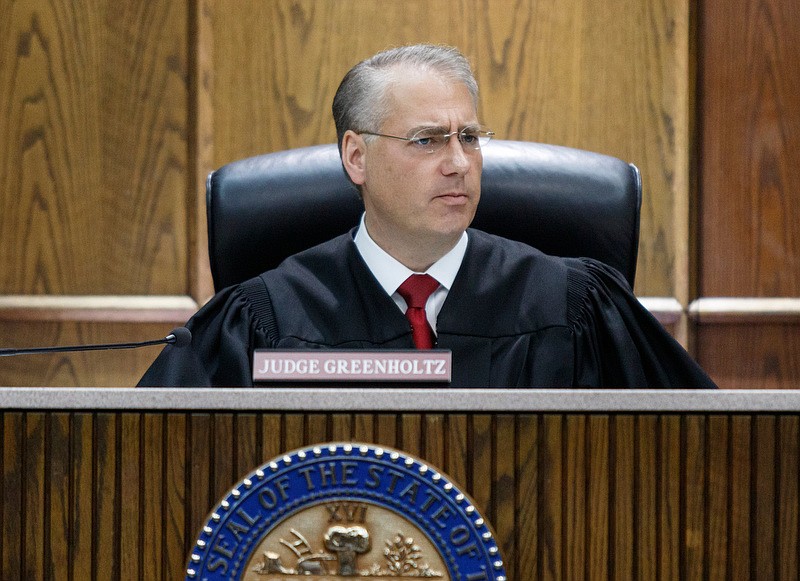During the early and mid-2010s, the crime problem in Chattanooga threatened to spiral out of control.
In 2013, this newspaper printed an article detailing the city's "worst" criminals, a group of 32 men who were tied to more than 300 crimes.
In 2014, Chattanooga Mayor Andy Berke rolled out a Violence Reduction Initiative (VRI), which targeted gang members and included the hiring of a public safety coordinator, the services of a high-profile consultant, training for police, the promise of help from nonprofit agencies, and a warning to violent gang members to stop their behavior or face state and federal penalties.
In 2016, Hamilton County District Attorney General Neal Pinkston responded to citizen complaints about gang-related crimes by creating a multi-agency team to target street gangs. The Tactical All-Region Gang Enforcement Team (TARGET) was said to be a joint effort of local, state and federal law enforcement agencies working to reduce gang related crime in the area while cutting the numbers of illegal guns and drugs on the streets.
In 2018, Pinkston said he would use the state racketeering law to indict 54 Chattanooga gang members (later amended to 55) for crimes including charges linked to five separate homicides. It was thought to be the first time a 2012 amendment to the state's Racketeer Influenced and Corrupt Organizations Act had been applied to a local street gang.
Criminal homicides in Chattanooga fell drastically from 32 in 2017 to 20 in 2018. But the number rose to 33 in 2019, the most in the past five years.
On Friday, Hamilton County Criminal Court Judge Tom Greenholtz dismissed racketeering conspiracy charges against 55 alleged members of the Athens Park Bloods gang, writing that the state had failed to meet the law's requirements to show conspiracy.
In August, he had dismissed racketeering (different from racketeering conspiracy charges) in 47 of the 55 cases because he said the state had failed to show a pattern of racketeering activity as defined by state law.
Eight defendants are still charged with racketeering.
The ruling by Greenholtz did not mention Pinkston or the Hamilton County District Attorney's office but faulted the "Grand Jury" for not identifying "the actual substantive racketeering crime(s) that the co-conspirators agreed to commit," for failing "to provide notice of 'the nature and cause of the accusation' brought against the accused" and for failing "to allege an essential element of a Tennessee RICO offense, i.e., that there existed 'a meeting of the minds between all co-conspirators' as to the object of the criminal conspiracy."
However, he said he ruled "without prejudice to the Grand Jury's reconsideration and bringing of an indictment or presentment that alleges each of the essential elements of the criminal conspiracy offense and that is brought in the form required by the RICO Act." In other words, charges could be refiled if they were done so in accordance with state law.
Evidence in grand juries is typically presented by federal, state and county prosecutors.
Pinkston in a statement blamed the "poorly written state RICO law" for the dismissals.
"I promise the people of Hamilton County we would try every tool available to curb gang violence," he said. "Hopefully, our lawmakers will recognize the problem they've created and give us a better version to work with in the future. Until then, we will continue to use the current law within the constraints provided by Judge Greenholtz's ruling."
Greenholtz, in his ruling, suggested the conclusions of the case would be different if Tennessee law - if that is what lawmakers desired - were in line with the federal racketeering law or the racketeering laws in other states such as Florida.
We would encourage Pinkston to get in touch with Hamilton County's legislative delegation, and any legislators who might provide insight, to propose legislation to revise the "poorly written law." The judge's ruling would prove a sound outline. And since Pinkston was encouraged to use the law to discourage gang violence, we're sure he must have more ideas on how to improve it.
In any case, while criminal homicides crept back up in 2019, gang violence seems to be down across the city. In August 2019, Berke termed it "significantly down."
"A few years ago, he said, "we were at roughly 70 incidents a year; last year we were at 27."
So if VRI and the racketeering charges did not work out exactly as planned, they at least seem to have been a cautionary tale for gang members in understanding that city and county law enforcement agencies are serious about not letting the problem get out of hand.
